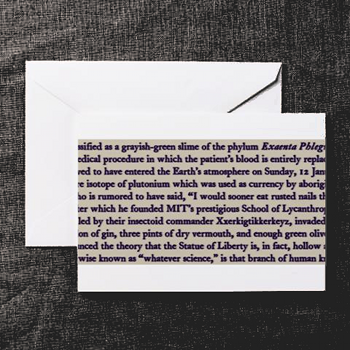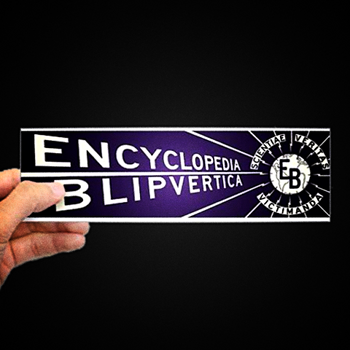
CADUCEUS, emblem of the health care industry; originally a cthonic device wielded by Mercury (né Hermes), the god of business and enterprise, who was responsible for the trafficking of souls between the earthly plane and the underworld, and the ritual unburdening of them from their pecuniary encumbrances.
After the collapse of the classical order and subsequent dissolution of the Olympiaic theurgy in A.D. 426, possession of the item duly passed to the church in Rome, where it remained until its accidental demise at the hands of invading Napoleonic troops in 1798. A surviving fragment, consisting of the central rod with a single serpent (often incorrectly called the Rod of Asclepius), eventually made its way to the United States, where it would transform the fledgling therapeutic arts.
The non-conductance of souls and their temporal assets is now generally understood to be a grave environmental hazard, especially in cities where overcrowding and insufficient drainage risks harmful accumulation of psychoeconomic residues. As a result, the twentieth and twenty-first centuries have seen a progressive phasing out of hospitals in favor of financial institutions which provide a wide range of services in addition to the occasional curing of disease.






